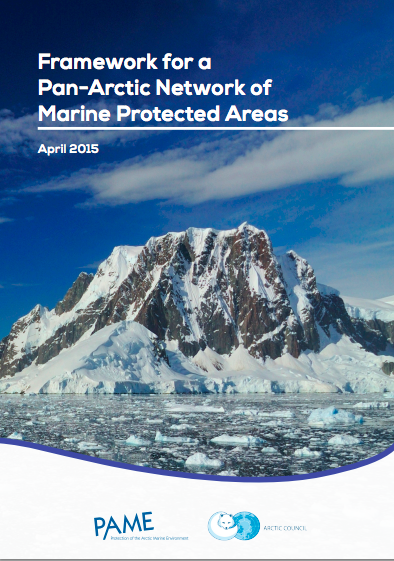PAME is one of six Arctic Council working groups. PAME was first established under the 1991 Arctic Environmental Protection Strategy and was continued by the 1996 Ottawa Charter that established the Arctic Council.

PAME is the focal point of the Arctic Council's activities related to the protection and sustainable use of the Arctic marine environment. It has a specific mandate to keep under review the adequacy of global and regional legal, policy and other measures, and where necessary to make recommendations for improvements that would support the Arctic Council's Arctic Marine Strategic Plan (2004).
PAME carries out activities as set out in bi-annual work plans approved by the Arctic Council on the recommendation of the Senior Arctic Officials. These activities led by PAME include circumpolar and regional action programmes and guidelines complementing existing legal arrangements aimed at protection of the Arctic marine environment from both land and sea-based activities. The Permanent Participants (Indigenous Organizations) of the Arctic Council participate actively in the work of PAME. PAME works in close collaboration with the other five Arctic Council Working Groups
The ninth Ministerial Meeting of the Arctic Council took place in Iqaluit, Nunavut, Canada from April 24-25, 2015. This meeting marked the end of Canada's Arctic Council Chairmanship (2013-2015) and the start of the US Chairmanship (2015 – 2017). Ministers of the eight Arctic states and Leaders of the six Permanent Participant organizations of the Arctic Council met, as well as the Chairs of the Arctic Council working groups.
The following are the PAME deliverables to the ministerial meeting:
The Arctic Marine Tourism Project (AMTP) Best Practice Guidelines
The Arctic Marine Strategic Plan (AMSP) 2015-2025.
The Framework for a Pan-Arctic Network of Marine Protected Areas (MPAs).
PAME Work Plan 2015-2017.
The Arctic Offshore Oil and Gas Guidelines: Systems Safety Management and Safety Culture Report.
Status on Implementation of the 2009 AMSA Report Recommendations
Ecosystem Approach Progress Report.
(source: pame.is)
